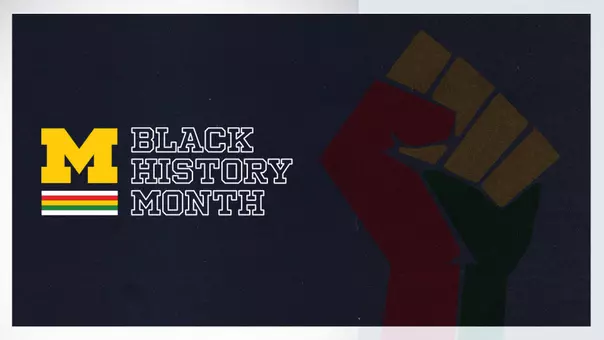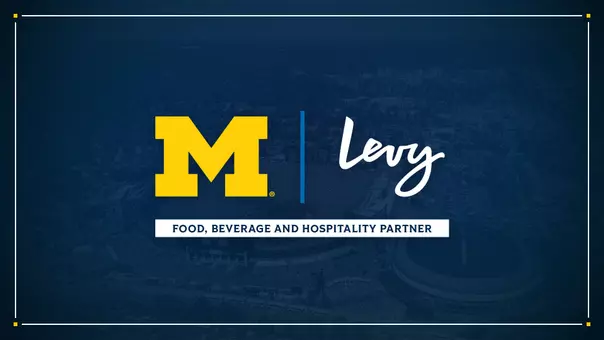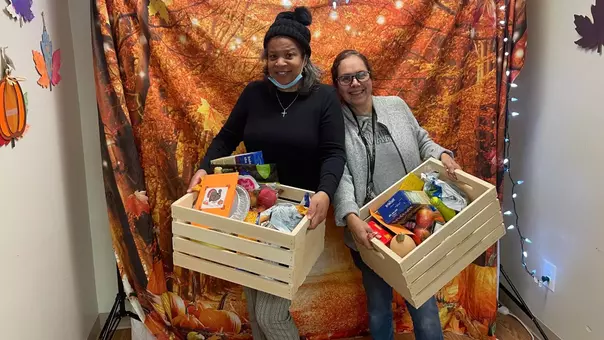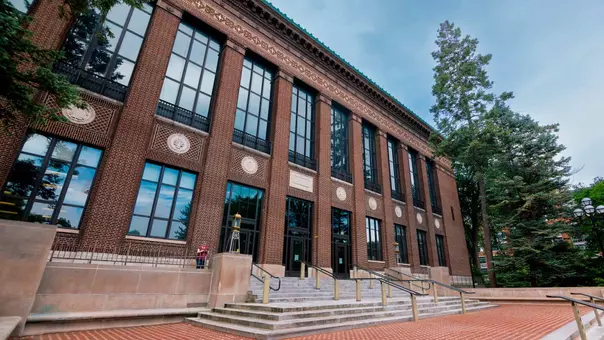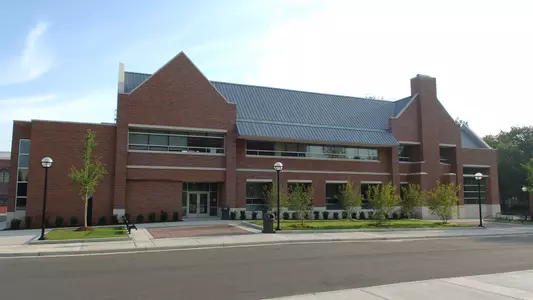
Miles Leads Academic Success Program: 'A Village' Works to Sustain Progress
4/7/2020 12:30:00 PM | General, Features, Academic Success Program
By Steve Kornacki
ANN ARBOR, Mich. -- Kenneth Miles leads the University of Michigan athletic department's Academic Success Program.
He supervises a team of 13 full-time members, five interns and approximately 120 tutors who serve nearly 1,000 student-athletes with counseling, tutorial and mentoring needs. They are the prime players in facilitating academic progress for the Wolverines.
However, they must now connect via phone calls, texts, emails and video conferencing with students who are taking online courses. Restrictions connected to the COVID-19 pandemic have brought about a virtual academic experience.
"I have a very talented team," said Miles, "and everyone who works within the Academic Success Program is a great contributor. And going beyond that, we have the reinforcement of the administration that helps, and coaches have been on board, too.
"Everyone really has pulled together, and there's this collective unit trying to help our students maintain some composure in reaching their goals of being a graduate student-athlete."
Michigan did not previously offer online courses but quickly created the infrastructure and mechanisms necessary to operate while also adhering to new rules.
"Instructors had a short turnaround in order to figure out what kind of format and what mode of communication was going to be utilized for this temporary time period," said Miles, an executive senior associate director who came from LSU to begin his post here six months ago. "And the thing we did on our side was to go ahead and make sure we're in accordance to CDC (U.S. Centers for Disease Control and Prevention) restrictions and make sure we're paying attention to social distancing while assuring that you were within the guidelines for minimal numbers (gathering).
"Prior to this, we had moved furniture out of the academic center in preparation to make sure that we were doing things in accordance. When the governor (of Michigan) gave the executive order to work remotely, the students at least had their laptops if there were any concerns with technology. They had the internet and Wi-Fi. But now, what do we do about our academic appointments? So, we simply transitioned all of the content in tutoring and mentoring over to BlueJeans (Network), and we utilized that format as a way to conduct our operations."

Miles
Miles, a four-year football letterman as a defensive lineman at the University of Virginia who went to high school in Washington, D.C., has earned master's degrees from his alma mater and Syracuse. Also, he's currently pursuing a Ph.D. in cultural foundations of education that focuses on first-generation African-American students "navigating post-secondary education in primarily white institutions," noting that "it is partly biographical" in his instance.
But he has not had to meet the online education adjustment in his latest academic pursuit.
"Mine are writing courses," said Miles. "I have been ABD (all but dissertation) for a while. So, it's just trying to get the writing process going. I have the proposal for the dissertation."
Still, he understands the challenges Wolverines face in adapting how they learn.
One online monkey wrench has been time zone differences. Students back home in California need to be attending classes that started at 8 a.m. in Ann Arbor at 5 a.m. Pacific time. International students experience far greater time differences.
"One of the things moving forward that is causing instructors to rethink how they would actually communicate lesson plans and logically what makes sense," said Miles. "So, you're going to find many sessions that are prerecorded to be able to avoid some of those things in the future. In working with some of our bridge programs, I know that they are going to have programs that are asynchronous because it doesn't have a problem that relates to time zones. It could be transcribed on BlueJeans and be a format that you can get the same instruction even if you're not able to be there in person.
"We record all of our sessions. It provides an accountability in terms of tutoring expectations and student expectations. It becomes the best practice when utilizing technology, assuring that we're doing it with integrity and in the Michigan way."
Instructors also have virtual office hours, and Miles said they've been "very receptive" to recognizing time zone differences while also incorporating email correspondence.
What feedback has he received from student-athletes on the new methods of learning?
"You're going to have some folks that like it online," said Miles, "and some are going to prefer to be in the classrooms. Those who love the online version do have a sense of how to organize things, and some like it because it provides a sense of freedom to their schedule, realizing that it also becomes a little more difficult because the onus is on you to be able to fill in the gaps on things.
"And you still have the ability to be engaged on whatever platform you use. It's just that the mode is different. So, whether you are going through the Canvas or BlueJeans or Zoom, chat rooms, there are ways to still be engaged in the subject manner. It's just that the responsibility rests with you."

The Academic Center is empty, but a virtual academic experience is taking place for U-M student-athletes across the globe.
The winds of change have arrived to meet the adjustments necessitated by the coronavirus.
However, might online learning -- not previously offered on the Ann Arbor campus -- become part of the learning process once it's no longer necessary?
"I haven't been involved in those discussions," said Miles, "but I think the realities are that you can capitalize on a nontraditional situation. The brand of Michigan was built in a way that there was no need necessarily to do that because everybody wanted to attend the University to enjoy the learning experience.
"But I would think now that that experience can perhaps be brought to their respective homes. So, I'm sure there are discussions talking about some of our programs and seeing what we can potentially do."
One difference brought about by the online learning was the decision to make classes for academic hour credits only and not for grades -- which is currently a nationwide trend. However, students striving for higher grade-point averages can apply to have a standard grade.
Miles said: "The University, in passing a grade policy for this term, is a 'Pass/No Record COVID-19' grading scale. Essentially, what that means is you will receive a 'P' (pass) for courses that are C- or above. If those grades are lower than that, you end up getting a 'No Record COVID-19.'
"The reason for doing that was to ensure that there's nothing punitive about grading. It's recognizing the challenge that we're currently living with and not creating more anxiety for folks as we traverse these turbulent times, but (also) allowing folks to still be at ease and go through the learning and teaching process in a way that's going to be meaningful to them.
"But you still can do that (receive grades) if you're pursuing some sort of academic honors (based on GPA). The student would actually have to make the request so they can appeal to have their grades unmasked."
Classes go on, even though the practices and games have halted. However, many instructors, counselors, tutors, mentors and administrators have stepped up to assure academic pursuits have continued at Michigan.
Miles said, "I certainly believe in the African proverb of 'It takes a village (to raise a child).' I think that can't be any more pronounced than it is right now."

